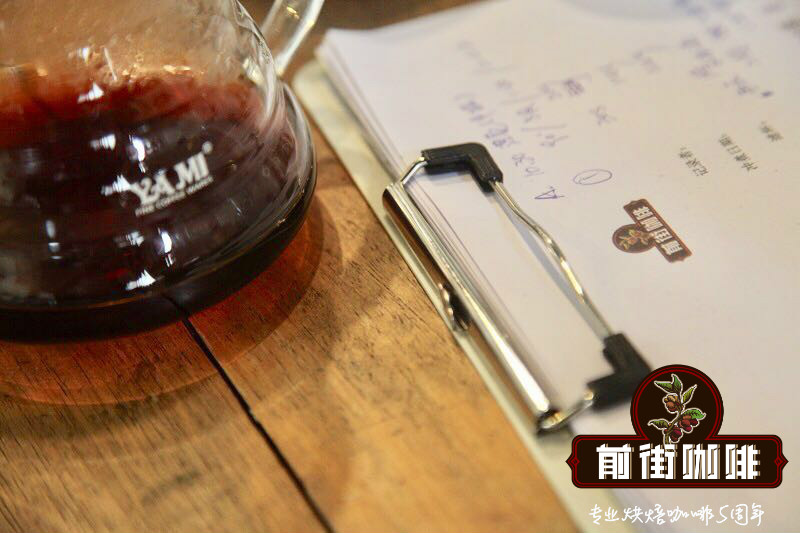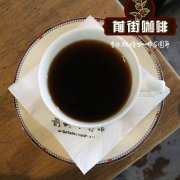Palo Blanco Manor Coffee, Guatemala how is the coffee graded in Guatemala?

Professional coffee knowledge exchange More coffee bean information Please pay attention to coffee workshop (Weixin Official Accounts cafe_style)
The earliest documents indicate that coffee was cultivated and drunk in Guatemala as early as 1747, and coffee became an important cash crop in Guatemala with the establishment of the Coffee Planting and Extension Committee in 1845. The government pushed for coffee to account for 90% of Guatemala's total exports by 1880, and in order to achieve greater yields, the authorities targeted indigenous lands and forced them to sell their land and move to poorer areas. The second exploitation came from large enterprises. During the Great Depression of 1930, Jorge Ubico, the ruler of the world, tried to stimulate the export market and reduce costs. At the same time, he also ceded more power and land to the large United Fruit Center (UFC) in the United States.
After Jorge Ubico stepped down, successor President Arbenz wanted to reclaim some of the UFC land and redistribute it to farmers, but in 1954 the CIA launched a coup to overthrow Arbenz's government. Poverty, unequal land distribution, famine, and discrimination against indigenous peoples led to the civil war (1960- 1966), but these problems persist today.
Guatemala elevation classification:
Like many Central American countries, Guatemala has its own growing elevation classification:
Prime: Planted at 750- 900 meters above sea level.
Extra Prime: Planted at altitudes of 900--1050m.
Semi Hard Bean: Planted at altitudes of 1050--1220m.
Hard Bean (HB): Planted at altitudes of 1220--1300m.
Strictly Hard Bean (SHB): Grown above 1300 meters.
Finca Palo Blanco is a small farm owned by the Ovalle family. Located in the high mountains near La Democracia town in the Vivi plateau region, the altitude here is about 1700 meters. Because of the hot air blowing from the lower part of La Democracia town, coupled with the high altitude area, it has natural temperature conditions, which makes the growth and quality of coffee so excellent.
The Ovalle family is committed to providing better coffee quality. In the process of diversified management and improvement, the estate has obtained many certifications, such as: National Organic Program (NOP) certification from the United States Department of Agriculture, Rainforest Alliance certification for environmental protection, UTZ certification for sustainable management, and Fair Code for Coffee and Growers (C.A.F.E.). Practices), etc., make the estate special and unique in its production area.
In addition, the Ovalle family is committed to giving back to society, improving the local educational environment and continuously improving the quality of life of employees.
"Guatemala" is a coffee friend's nickname for Guatemala. This Mayan city sits atop 37 volcanoes, two of which erupted in 2010. With frequent tornadoes and natural disasters everywhere, it is a veritable "dangerous place". However, fertile volcanic soil, undulating mountains and a variable microclimate are ideal conditions for growing coffee. As of 2011, Guatemala was the country with the highest coffee production in Central America.
Front Street Coffee Roasting Advice:
Guatemala SHB coffee beans have high hardness. In order to make them fully stretch and develop flavor, and maintain the high-quality sourness of Guatemala coffee, the operation of "pulling acid" can be adopted during roasting_increase the fire power at the turning point, keep the temperature curve rising steeply to achieve the purpose of increasing the fire, promoting the explosion, intensively reducing the fire, making the operation of "increasing sweetness", developing sweetness, and turning off the fire before the beans to increase the taste and ripeness. The smoky flavor of Vivienne fruit will be more obvious in the deeper roasting degree, so it is necessary to adopt a lighter roasting degree. It is recommended to develop beans at about 13 degrees in one explosion. Coffee beans are at the stage of near the end of one explosion, and light roasting.
Hand washing tips suggested:
V60 filter cup, medium fine grinding, water powder ratio 1:16, water temperature 88~90°C
Other brewing suggestions:
Normal pressure: moderate grinding, water powder ratio 1:15, water temperature 87~89°C
Siphon pot: medium fine grinding, water powder ratio 1:15, water temperature 87~89°C
Important Notice :
前街咖啡 FrontStreet Coffee has moved to new addredd:
FrontStreet Coffee Address: 315,Donghua East Road,GuangZhou
Tel:020 38364473
- Prev

Are Cuban coffee beans expensive? Characteristics and flavors of Cuban Coffee
For information, please follow the coffee workshop (Wechat official account cafe_style). In 1748, coffee was introduced to Cuba and quickly became a habit and a daily life with deep social and cultural connotations. Cuba has a fertile land, a subtropical climate, a humid climate and abundant Rain Water, with mountains between 350m and 750m above sea level and an average temperature of 23-28 degrees.
- Next

What are the famous coffee producing areas in Guatemala? Introduction of El Platanillo Manor in Guatemala
Professional coffee knowledge exchange more information about coffee beans Please follow the coffee workshop (Wechat official account cafe_style) the former importers divided coffee into two categories: Brazil and Brazil and Mild. At that time, Brazilian coffee was a negative example: mixed with immature, overripe or defective beans and treated with unstable sun treatment, the coffee produced was difficult to swallow and of low quality.
Related
- Does Rose Summer choose Blue, Green or Red? Detailed explanation of Rose Summer Coffee plots and Classification in Panamanian Jade Manor
- What is the difference between the origin, producing area, processing plant, cooperative and manor of coffee beans?
- How fine does the espresso powder fit? how to grind the espresso?
- Sca coffee roasting degree color card coffee roasting degree 8 roasting color values what do you mean?
- The practice of lattes: how to make lattes at home
- Introduction to Indonesian Fine Coffee beans-- Java Coffee producing area of Indonesian Arabica Coffee
- How much will the flavor of light and medium roasted rose summer be expressed? What baking level is rose summer suitable for?
- Introduction to the characteristics of washing, sun-drying or wet-planing coffee commonly used in Mantenin, Indonesia
- Price characteristics of Arabica Coffee Bean Starbucks introduction to Manning Coffee Bean Taste producing area Variety Manor
- What is the authentic Yega flavor? What are the flavor characteristics of the really excellent Yejasuffi coffee beans?

